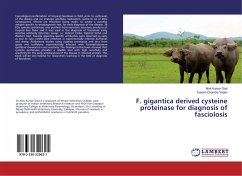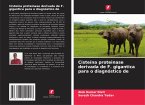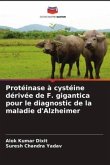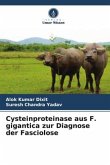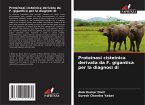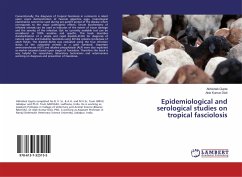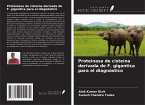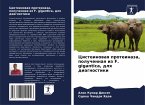Coprological confirmation of tropical fasciolosis in field, prior to outbreaks of the disease and /or strategic antifluke medication, seems to be of little consequence. Efforts are therefore being made, to evolve a putative antigen specific to serodiagnostic test, for early diagnosis of the disease. 28 kDa cysteine proteinase was purified from excretory secretory products of tropical liver fluke and it was used in the diagnosis of fasciolosis using sensitive antibody detection assays, i.e. Indirect ELISA, Dipstick ELISA and Western blot. Fasciola gigantica specific antibodies were observed as early as two to four weeks post infection in experimentally infected buffaloes and sheep. Preliminary studies using cysteine proteinase and sera from goats and buffaloes, experimentally infected with Paramphistomum epiclitum showed no cross reactivity. The findings in this book showed that cysteine proteinase provides a reliable tool with high sensitivity and specificity for the early serodiagnosis of the disease in infected animals. This book will be very helpful for researchers working in the field of diagnosis of fasciolosis.
Bitte wählen Sie Ihr Anliegen aus.
Rechnungen
Retourenschein anfordern
Bestellstatus
Storno

